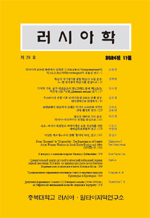한-러 스마트 철도 기술 비교를 통한 유라시아 철도 연결 협력 전략
Cooperation strategy for Eurasian rail connectivity through comparison of Korean-Russian smart rail technologies
- 충북대학교 러시아 알타이지역 연구소
- 러시아학
- 제30호
-
2025.05137 - 166 (30 pages)
-
DOI : 10.24958/rh.2025.30.137
- 3

본 연구는 한국과 러시아 간 스마트 철도 기술을 비교 분석하고, 유라시아 철도 네트워크 통합을 위한 협력 가능성을 탐색하였다. 한국은 고속 주행이 가능한 궤간가변대차 기술과 AI 기반 상태기반 유지보수(CBM) 시스템을 보유하여 러시아의 방대한 철도 인프라의 효율성을 높일 수 있다. 반면, 러시아는 광대한 철도망과 풍부한 운영 경험을 바탕으로 한국의 대륙철도 시장 진출을 지원할 수 있다. 본 연구에서는 궤간 변환과 유지보수 시스템 간의 상호 호환성과 같은 기술적 문제를 주요 과제로 분석하였다. 한반도 종단철도(TKR)와 시베리아 횡단철도(TSR)의 연결은 동북아시아 및 유럽을 잇는 중요한 경제·지정학적 기회를 제공할 수 있지만, 국제 제재 및 북한의 러시아 군사 지원과 같은 정치적 불확실성이 협력에 장애 요인으로 작용할 수 있다. 이에 따라 본 연구는 단계적 철도 협력 추진, 국제 표준화 노력, 그리고 공공-민간 협력(PPP)을 통한 스마트 철도 인프라 자금 조달 활성화를 정책적 대안으로 제안한다. 향후 연구에서는 기술적 상호 호환성 강화, 극한 기후에서도 안정적으로 운영 가능한 철도 시스템 개발, 그리고 국제 제재 속에서도 지속 가능한 경제 협력 방안 마련에 집중해야 한다.
This study conducts a comparative analysis of smart railway technologies between South Korea and Russia and explores potential cooperation opportunities for the integration of the Eurasian railway network. South Korea has developed advanced technologies such as high-speed variable gauge bogies and AI-driven Condition-Based Maintenance (CBM) systems, which can substantially improve the efficiency of Russia's extensive railway infrastructure. Conversely, Russia possesses vast railway networks and operational experience, which can facilitate South Korea's expansion into the transcontinental railway market. A major focus of this study is the technical interoperability challenges, including gauge conversion and maintenance system compatibility. The integration of the Trans-Korean Railway (TKR) and the Trans-Siberian Railway (TSR) presents significant economic and geopolitical opportunities, promoting regional stability and economic cooperation in Northeast Asia. However, political uncertainties, including international sanctions and North Korea’s association with Russian military initiatives, pose challenges to this collaboration. Policy recommendations include a phased approach to railway integration, international standardization efforts, and the promotion of public-private partnerships (PPP) to finance smart railway infrastructure. Further research should focus on enhancing technological interoperability, developing resilient railway systems for extreme climatic conditions, and establishing sustainable economic cooperation mechanisms under existing international sanctions.
Ⅰ. 서론
Ⅱ. 한국 철도 스마트 기술 현황
Ⅲ. 러시아 철도 스마트 기술 현황
Ⅳ. 스마트 철도 기술 도입시 도전 과제와 해결방안
Ⅴ. 한-러 철도 기술 비교 분석
Ⅵ. 한-러 철도 협력의 미래 발전 방향
Ⅶ. 결론 및 정책 제언
참고문헌
(0)
(0)